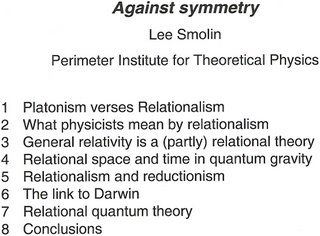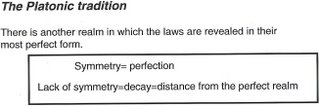So, every "story line" is about a Journey? IN Angel and Demons, we follow the story of Professor Robert Langdon.

The Vatican summons Professor Robert Langdon (Tom Hanks) and Vittoria Vetra (Ayelet Zurer) from CERN to help them solve the Illuminati's threat, save the four preferiti, and find the hidden bomb. Langdon listens to the Illuminati message and deduces that the four cardinals will die at the four altars of the Path of Illumination. See: Angels and Demons
So in relation, I pointed out that Dan's Brown's book which I read, and the film I have yet to see has it's differences, while we see the transfer from one medium to the next. Same storyline. Pirsig's touch with the recognition of the Chautauquas, "the traveling tent-show Chautauquas that used to move across America, this America, the one that we are now in, an old-time series of popular talks intended to edify and entertain, improve the mind and bring culture and enlightenment to the ears and thoughts of the hearer."
Anyway, I presented the Dialogues of Plato and the Plays of William Shakespeare as forums in which characters real or imagined, help to move forward the reader under "ideological progressions," as if, dealing with this inductive/ deductive realization of information and probable outcomes once given the scenarios which are displayed for the mind to entertain.
Earlier in this thread I had mentioned Robert Pirsig and it is here as well I mention, "The Beautiful Mind." Both situations here are recognition of the Demons both indivudals(John Forbes Nash) under go, as their story written is told in a life lesson and in John Nashes case, a film. Must we recognize that genius courts closely the aberrations of a sane and inquisitive mind, who looses touch with reality. Not so different then, when one who holds to this "other agenda of the Illuminati" in the Angel here Demons story here?
After suffering a nervous breakdown, Pirsig spent time in and out of mental hospitals from 1961 – 1963. After undergoing a psychiatric evaluation, he was diagnosed with paranoid schizophrenia and clinical depression, and was treated with shock therapy. Pirsig had made a progressive recovery and had discontinued psychotherapy in 1964. He later began working as a freelance writer. See: Robert Pirsig
So who was Robert Pirsig's Demon(Daemon)?
The words daemon, dæmon, are Latinized spellings of the Greek δαίμων (daimôn),[1] used purposely today to distinguish the daemons of Ancient Greek religion, good or malevolent "supernatural beings between mortals and gods, such as inferior divinities and ghosts of dead heroes" (see Plato's Symposium), from the Judeo-Christian usage demon, a malignant spirit that can seduce, afflict, or possess humans See:Daemon (mythology)
If one has the chance to read Robert Pirsig's book Zen and the Art of Motorcycle Maintenance , one should most certainly do so. I had seen this book lying around over the years and never really gave it much notice until a gentlemen spoke to me about the issue of "Quality and the Good."
Being a reader of Plato and seeing this influence in science today, I was after something quite substantial as I look to see how ideas could enter the mind, and that in general, not to conceive of it as an portend of evil( that Daemon), but as an acquisition of the inquiring mind of the student to reveal "a higher wisdom" resides in each of us.
This was part of setting the stage if you might, to recognizing this "dual nature," as an inductive/deductive relation we use in our relationship with the world. So in this sense, a scientific position and responsibility of becoming an open person to receive information, as you delve ever deeper into the nature of things. I am not saying this is the way it is, just that it is a "point of view" I was able to gather, once one does their own homework. Pays attention to the politics. What is "self evident?"
So indeed Noise presents a "climatic realization of assumption after assumption." In the real world, we are only armed with what we are expose too? Is this not the way it seems? Why such medium exposure might be thought of, as to the "way the world is according too," which point of view. You have to be given the power back for discernment of what it means to you and ever the role of a scientific mind as to inquiry, for being responsible.

The conclusion of the whole matter is just this,—that until a man knows the truth, and the manner of adapting the truth to the natures of other men, he cannot be a good orator; also, that the living is better than the written word, and that the principles of justice and truth when delivered by word of mouth are the legitimate offspring of a man’s own bosom, and their lawful descendants take up their abode in others. Such an orator as he is who is possessed of them, you and I would fain become. And to all composers in the world, poets, orators, legislators, we hereby announce that if their compositions are based upon these principles, then they are not only poets, orators, legislators, but philosophers.
Plato, The Dialogues of Plato, vol. 1 [387 AD] PHAEDRUS.
It is important to know then that Robert Pirsig's Angel or Daemon, was Phaedrus( depends on how you look at it in terms of what was given to Pirsig). As real or imagined the story line in the Journey across America with his son, was the realization of the lost years in an identity that went on a excursion, and never came home until the breakdown. John Nash had his own characters in the film, discovered later on, were the imaginings of a mind, lost in the battle of what is real with paranoid schizophrenia. For John Nash it was always then later on in dealing with reality the struggle of who John Nash was while facing these imaginary people.
So while I say "real or imagined" one understands fully here that while we had identified the use of characters under the notion of "creative writing of Plato or of Bacon's Shakespeare," it was apparent that in the cases that I have sighted of Robert Pirsig and John Nash, that while sick mentally, genius and brilliance were courted.
While I would point to John Nashes mathematical astuteness while sick, I am more wanting to point out the "Quality and the Good" of Pirsig as I continue. This is an understanding of that finer attribute of theoretical thinking that we ventured too. To see if reality by experimentation thusly engendered, then qualifies. How indeed did progression be marked if it did not allow one to see anew, with a new perspective and experiments are validated. In sociological thinking of our everyday, how did our assumptions prove we were thinking theoretically, while assessing the politico defalcates of position and inherent of a party? What is the basis of this discernment then we can discriminate the truth of applied rights of constitutions written for democracies were written for freedoms and rights?











